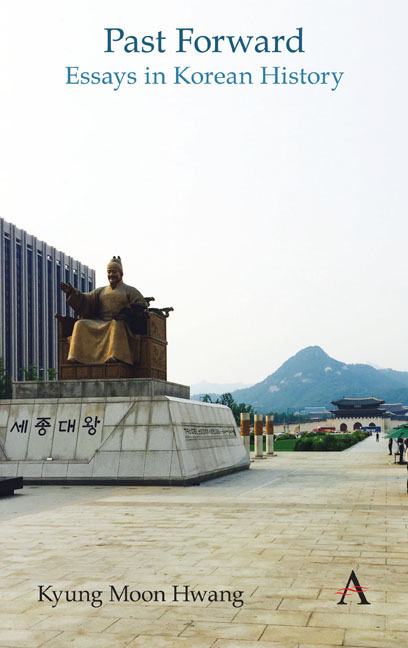Book contents
- Frontmatter
- Contents
- List of Figures
- Foreword
- Chronologies of Korean History
- Themes
- Acknowledgments
- Note on Romanization and Spelling
- Part I Circulating History
- Part II Durable Traditions
- Part III Ancient Remains
- Part IV Dynastic Depths
- Part V Modern Origins
- Part VI Challenges of Nationhood
- 30 Korea's Past in Light of Brexit
- 31 Openness and Exclusion
- 32 The North Korean View of History
- 33 Another Way to View National Division
- 34 The First National Assembly Elections
- 35 Who Started the Korean War?
- 36 Textbooks and Competing Nationalist Histories
- 37 The Complexities of Memorial Day
- 38 Adoption's Spotlight on Korean History
- 39 Questioning Monuments
- 40 Taking Ownership of the Past
- Part VII History Makers
- Part VIII External Presences
- Part IX Trials of Modernization
- Part X Gripped by the Past
- Index
40 - Taking Ownership of the Past
from Part VI - Challenges of Nationhood
- Frontmatter
- Contents
- List of Figures
- Foreword
- Chronologies of Korean History
- Themes
- Acknowledgments
- Note on Romanization and Spelling
- Part I Circulating History
- Part II Durable Traditions
- Part III Ancient Remains
- Part IV Dynastic Depths
- Part V Modern Origins
- Part VI Challenges of Nationhood
- 30 Korea's Past in Light of Brexit
- 31 Openness and Exclusion
- 32 The North Korean View of History
- 33 Another Way to View National Division
- 34 The First National Assembly Elections
- 35 Who Started the Korean War?
- 36 Textbooks and Competing Nationalist Histories
- 37 The Complexities of Memorial Day
- 38 Adoption's Spotlight on Korean History
- 39 Questioning Monuments
- 40 Taking Ownership of the Past
- Part VII History Makers
- Part VIII External Presences
- Part IX Trials of Modernization
- Part X Gripped by the Past
- Index
Summary
It used to be said that unlike in most other democracies, in South Korea one's political identity depended on his or her opinion, ironically, of North Korea. Whether one was “conservative” or “liberal,” or something in between or beyond, reflected mostly one's stance regarding the North.
Of course, it was more complicated than this. The issues that shaped a South Korean citizen's political ideology and affiliation usually were numerous and worked in complex ways. Still, this somewhat conventional analysis seemed, at heart, correct. If so, it was easy to see where such a reality came from: the fierce state ideology of anti-communism during the decades of authoritarian rule.
The 2017 election of Moon Jae-in, however, raised further doubts about this picture of South Korean politics, because the presidential campaign took place amid high inter-Korean tensions, normally optimal electoral conditions for conservatives. As it turned out, one of the least anti-communist candidates won the presidency, and he did so convincingly. We could suggest that special circumstances—namely the process by which the previous president, Park Geun-hye, was removed from office—made this particular election an exception to the rule. That is, as long as national division stays in place, disagreements over North Korea will probably remain central to political alignment and behavior in South Korea.
I would argue, however, that the 2017 presidential election showed the rise of another major factor in South Koreans’ political identity and ideology: history. More specifically, since the turn of the twenty-first century, one's historical identification with the recent past, or one's sense of “ownership” over the nation's history, has become just as important. In short, historical views determine political views, and vice versa.
There is a generational aspect to this phenomenon. During the mass candlelight demonstrations beginning in the fall of 2016, for example, many middle-aged citizens expressed publicly their sense of ownership over the country's history, specifically the struggle for democracy. This was the notion that they must protect the democracy that they, as students and young adults, had sacrificed so much to gain. As the historical builders of democracy, they had to be its primary defenders.
- Type
- Chapter
- Information
- Past ForwardEssays in Korean History, pp. 117 - 119Publisher: Anthem PressPrint publication year: 2019



